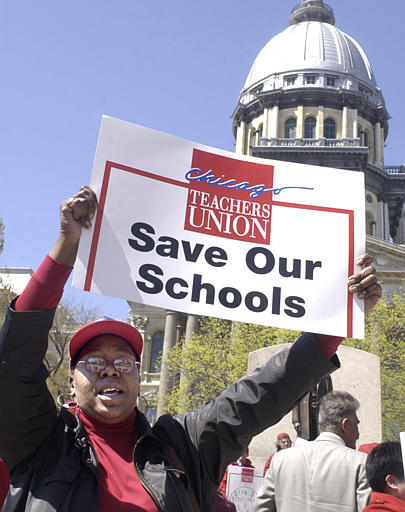In Chicago Teachers Union v. Hudson, 475 U.S. 292 (1986), a unanimous Supreme Court ruled as insufficient a set of union procedures created for nonmembers to object to due collection.
Chicago Teachers Union had procedure for objection to due collection
The Chicago Teachers Union had established a three-pronged procedure for objecting to the collection of dues:
- the union’s executive committee would consider the objection and make a decision within 30 days;
- the dissenter could then appeal within 30 days and the executive board would reconsider; and
- if the objector continued to protest, the union president would select an arbitrator from a list maintained by the Illinois Board of Education.
First Amendment rights must be protected through procedural safeguard
The Court, relying on its earlier decision in Abood v. Detroit Board of Education (1977), held that the procedural safeguards were necessary for two reasons.
- First, the First Amendment freedom of association requires that the nonmember employees’ rights be protected and that the procedure be carefully tailored to minimize the infringement of their rights.
- Second, the nonunion employee must have a fair opportunity to identify the impact of the governmental action on his or her interests and to assert a First Amendment claim.
Procedure for protesting union dues fell short, Court says
The Court held that the original union procedure was inadequate because it failed to minimize the risk that nonunion employees’ contributions might be used for impermissible purposes, failed to provide adequate justification for the advance reduction of dues, and failed to offer a prompt decision by an impartial decision maker.
In order to meet the requirements of the First Amendment, the union’s collection of fees had to include an adequate explanation of the basis for the fee charged, a reasonably prompt opportunity to challenge the amount of the fee before an impartial decision maker, and an escrow account for the amounts reasonably in dispute while such challenges are pending.
Justice Byron White filed a concurring opinion, which Chief Justice Warren E. Burger joined, reasoning that if the union provides for arbitration and complies with the requirements of the First Amendment, it should be allowed to insist that the dissenter exhaust the arbitration procedure before going to court.
Alan Tauber is a constitutional law attorney in Washington. In addition to a law degree from George Washington University School of Law, Tauber has a master’s degree in political science. This article was originally published in 2009.

